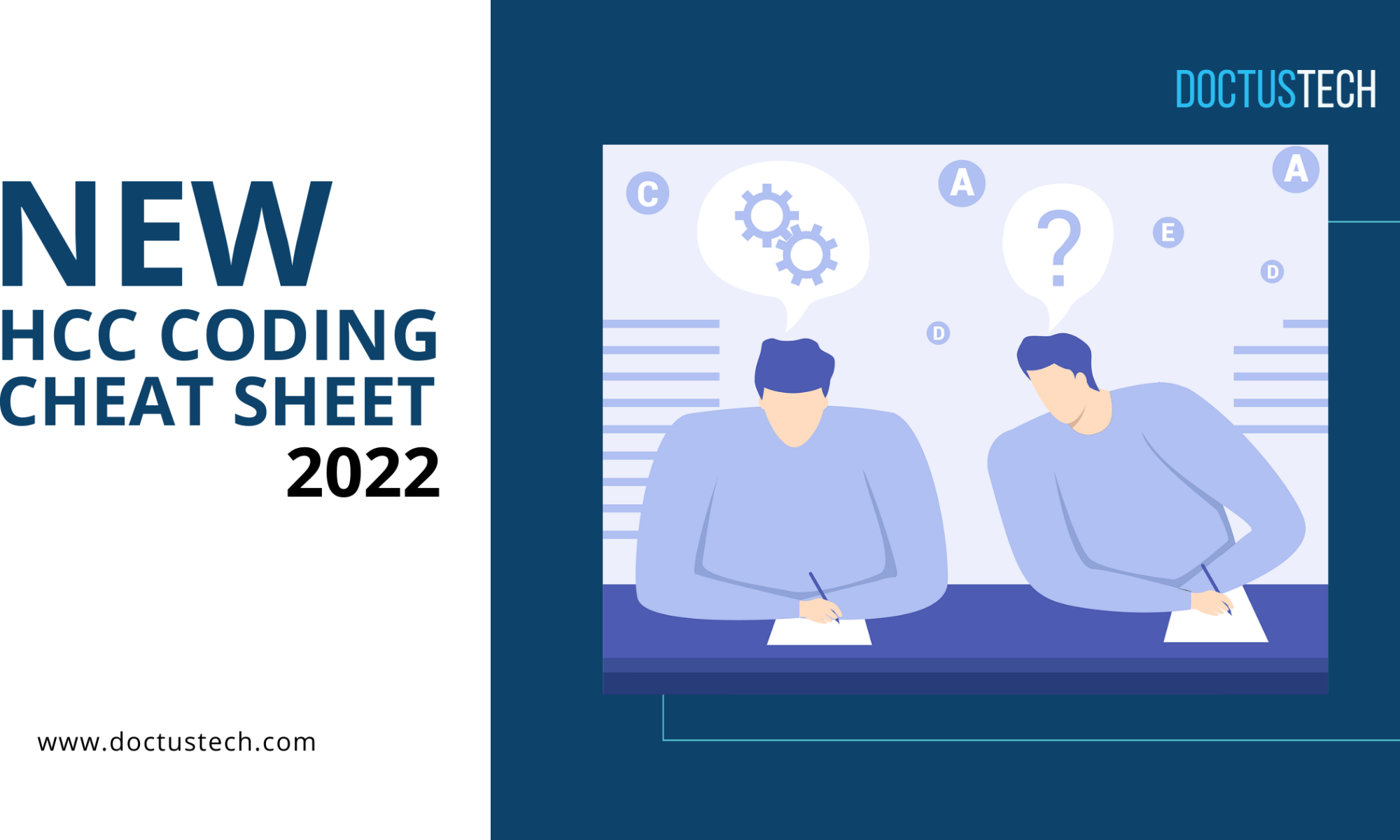Here is the cheat sheet you’re looking for: DOWNLOAD
ICD-10 codes are hard. Knowing which codes to use for Risk Adjustment in your Value-Based Care is even harder. And even the best available clinician training rarely yields lasting behavior change. Your team needs a resource in your pocket, but a cheat sheet isn’t the best available.
A cheat sheet for ICD-10 codes can include a list of the codes and their descriptions, as well as common scenarios and the corresponding codes that should be used.
Having a cheat sheet can also help you quickly look up any unfamiliar codes so that you can make sure you are using the correct ones. Some cheat sheets may even include helpful tips on how to use the codes, which can be very useful for those who are just learning about ICD-10 coding.
So, if you are dealing with ICD-10 codes, having a cheat sheet can be a great way to stay organized and make sure you are using the correct codes.
Is it a cheat sheet if it helps provide better care to patients?
Absolutely not! First of all, it can help streamline the process of coding diagnoses and treatments. By having an easily accessible reference guide for ICD-10 codes, healthcare providers and coders can quickly look up the correct codes for their documentation. This saves time and can help ensure that all pertinent information is accurately and properly coded.
Secondly, an ICD-10 code cheat sheet can help to improve accuracy in medical coding. Medical coding is a complex process, and mistakes can be costly. An ICD-10 code cheat sheet can provide coders with a quick reference to ensure that they are using the correct codes for diagnoses and treatments. This can help reduce errors and improve patient care by ensuring that all relevant information is accurately and properly coded.
Finally, an ICD-10 code cheat sheet can help ensure that all necessary information is documented in a timely manner. By having a handy reference guide for ICD-10 codes, healthcare providers and coders can ensure that all necessary information is recorded quickly and accurately. This can help speed up the process of providing care to patients and ensure that their records are up to date.
In summary, an ICD-10 code cheat sheet can be a valuable tool for providing better care to patients. It can help streamline the process of coding diagnoses and treatments, improve accuracy in medical coding, and ensure that all necessary information is documented in a timely manner.
Why are so many clinicians searching for a cheat sheet?
ICD-10 codes are extremely complex and can be difficult to keep track of, and everyone wants to make their jobs easier and accurate. Clinicians too are often looking for quick and easy ways to access the codes they need quickly and easily. A ICD-10 code cheat sheet is a great way to do this.
For example, there may be codes related to infectious diseases, cardiovascular diseases, etc. This cheat sheet allows clinicians to quickly find the code they need without having to search through a long list of codes.
The other advantage of a ICD-10 code cheat sheet is that it can be used to check for accuracy. If a clinician suspects that a code might not be correct, they can quickly refer to the cheat sheet to double-check the code before submitting it for billing purposes. This helps ensure that the code is accurate and helps avoid any issues with billing.
Get your ICD-10 code cheat sheet now!
Here are two simple resources that you can use to quickly and efficiently locate and select the most appropriate ICD-10 code when diagnosing chronic conditions for patients in a risk arrangement.
The DoctusTech HCC Quick Guide: A simple PDF with the HCC codes for the most frequently diagnosed conditions.
The DoctusTech App – the best code finding lookup tool for VBC, complete with insights on connected conditions and proper documentation requirements.

